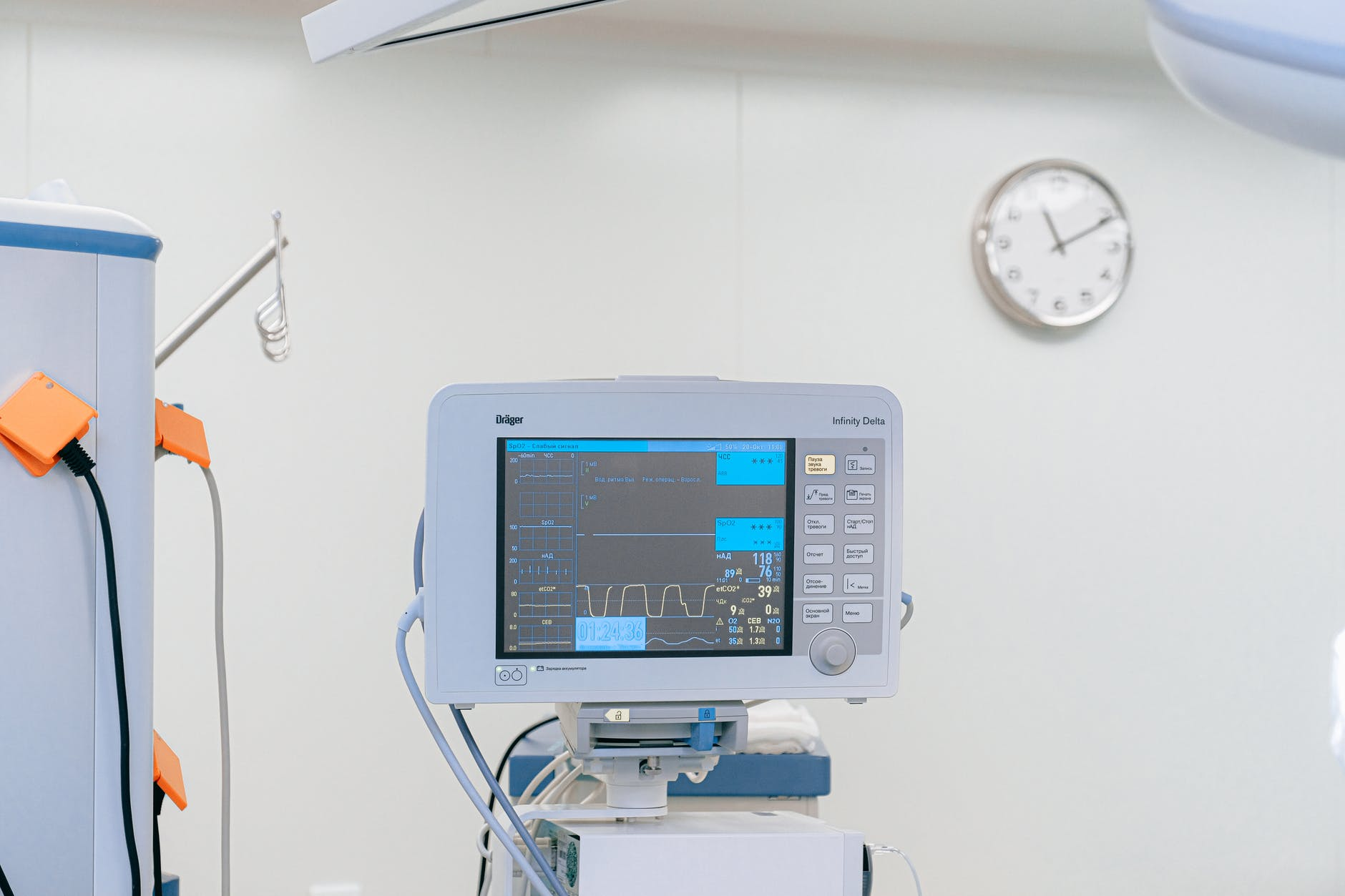Artificial Intelligence and technology in general has exercised its impact on all walks of life. Medicine and health care is no exception.
Quick and impressive improvements in AI have already taken healthcare by storm.
Be it improving the accuracy and efficiency of diagnosis of ailments and treatment across various specializations or speech recognition in clinical documentation, AI has been miraculous.
The innovation has been such that a lot of experts believe that AI should even be able to replace doctors altogether, especially radiologists.
The speculations that your future doctor may not be a human are at an all time high.

Photo by Edward Jenner from Pexels
To what extent are these claims true and would AI be able to replace doctors soon?
How various fields of AI such as Natural Language Processing and Machine Learning would transform medicine in the coming years?
Although we are not very convinced by the claim that AI would be able to replace doctors altogether, we can consider the possibility of AI augmenting the role of doctors and helping introduce some key transformations in the way the healthcare sector has been operating.
Let’s study this further and understand how Natural Language Processing will drive the era of online doctors.
Natural Language Processing in Healthcare
Healthcare databases are growing at an unimaginable pace.
There is lots of data.
Text analytics and natural language processing (NLP) help extract information out of this data, they help turn this data into something that holds value.
4 Key Areas in Healthcare Where NLP Would Help
Translating Free Text into Standardized Data
Natural Language Processing helps complete electronic health records by translating free text into standardized data, while also enhancing the accuracy of the same.
NLP can help us get a lot of meaningful information accessible by free-text query interfaces.
We can expect the future doctors to dictate their patient notes to a robot or an interface, thus saving time spent on maintaining documentation and paying undivided attention to the patient.
Also, it may be possible for the doctors to create customized educational materials for patients ready for discharge.
Furthermore, given an arbitrary piece of text, NLP could be used to identify and extract keywords such as symptoms or pain points and with precision.
This can take the medical world by storm because it may serve as a replacement for a doctor.
The precision of extraction can be questionable though, to begin with and may need a real doctor for supervision.
Extracting Information from Vague Notes
Many a time while recording information, doctors keep typing everything in one place.
Generally, this happens to be the notes section of the electronic medical record.
These blurbs are mostly lost and even if we want to revisit this unstructured information for crucial insights, it’s a manual process that consumes a lot of time.
Natural Language Processing can be employed here to automatically extract these insights and save a lot of time.
Further, these blurbs don’t only have clinical information about the patients but a lot of social as well as cultural insights as well, mentioned casually while taking notes, which can’t be left out just like that.
Making it Easy for Radiologists
Radiology has seen a lot of improvements over time.

Photo by Anna Shvets from Pexels
Today we have better machines for ultrasound, Computed Tomography (CT), Magnetic Resonance Imaging (MRI), and Positron Emission Tomography (PET) scanning technologies.
However, in the era of online doctors, the next improvement won’t come in the form of an improved ultrasound machine but AI utilizing the imaging data and interpreting it to provide an output.
This includes steps such as automatic segmentation of various structures within CT and MR images.
In the coming few years, AI will be a common sight in a radiologist’s clinic.
Medical images may be pre-analyzed by an NLP tool before being reviewed by a radiologist.
The tool would augment the radiologist’s job and help perform key routine operations such as pattern recognition with ease.
Answering Common Queries
There can be a lot of days when the ailment is not serious enough to visit the doctor’s clinic.
Or, there can be days when you need answers to some common questions but won’t find them on Google because they are unique to your situation.
NLP can be called to your rescue here.
In the era of online doctors, NLP can be used to create something that responds to medical queries from both patients and physicians.
For instance, you may want to ask “Can I take Paracetamol while I am pregnant?” or “I have been taking this drug and now I’ve been feeling a bit nauseous, is that normal?”.
For such queries, NLP can be used to extract the relevant medical terms and surrounding context.
Further, using these we need to retrieve the documents most responsive to the question terms from a repository of curated answers, pretty much like Google serves answers to search queries.
However, this is not similar to robots that have a predefined set of answers to a predefined set of questions. It requires the best of AI to come up with answers of high clinical precision.
NLP in Action
3M is a renowned provider of NLP empowered solutions for healthcare.
3M’s NLP empowered product helps automate the process of extracting useful information and numerous clinical concepts from unstructured data. This includes the free text in notes of the doctor, EHRs and other reports.
The software scans doctor’s resorts containing unstructured data using NLP and turns it into meaningful information that can be further processed.

Photo by Gustavo Fring from Pexels
Amazon offers a product called Amazon Comprehend Medical that makes it very easy for doctors to extract relevant information from their notes and blurbs.
Everything about the patient right from the ailment, prescribed medicine along with its frequency can be collected using a number of sources such as the notes taken by the doctor during consultation and patient health records.
The tool claims that this data can further be used to select a set of patients for a clinical trial of a vaccine or any other experiment, or just to segment patients for better understanding of their symptoms and effects of certain medications on them.
Thus, these were some of the ways in which NLP has been and is expected to revolutionize the medical world.
In an era where we are looking for mechanical replacement for almost everything, NLP can be critical.
NLP is what helps machines understand the human language with context.
The key to develop better solutions is to focus on creating algorithms that are not only accurate, but increasingly smart and intelligent, and specific to healthcare.
The role of NLP and AI in healthcare is more about augmenting the role of doctors rather than replacing them altogether.
If we are able to achieve this, there is no limit on what doors could be open in the future.


